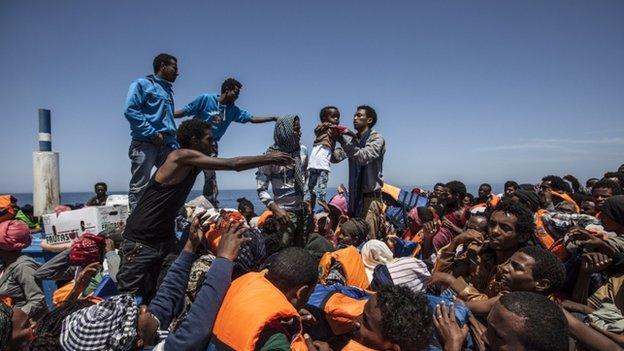HMS Bulwark faces 'tragic' migrant operations in Mediterranean
- Published
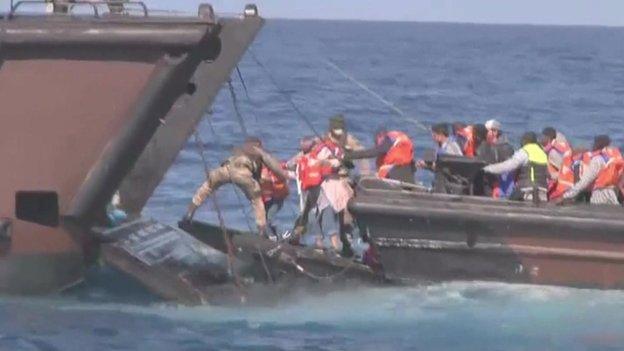
More than 43,000 people have crossed the Mediterranean this year already
Tonight HMS Bulwark is poised to carry out another rescue of migrants.
It's one of about a dozen warships and civilian vessels trying to tackle the human tide of thousands of people leaving Africa for Europe.
It's no easy task. They're having to cover an area of around 70,000 square miles, trying to spot the small boats crammed with desperate people hoping to be rescued and taken to a safer world.
Bulwark was already sailing towards the Libyan coast when we flew on board by Merlin helicopters. Over the past month she's already rescued almost 1,800 people. The helicopters have helped spot thousands more, directing other ships to help.
And as soon as we landed there were reports of another 3,000 migrants leaving Libya's shores in 14 boats.
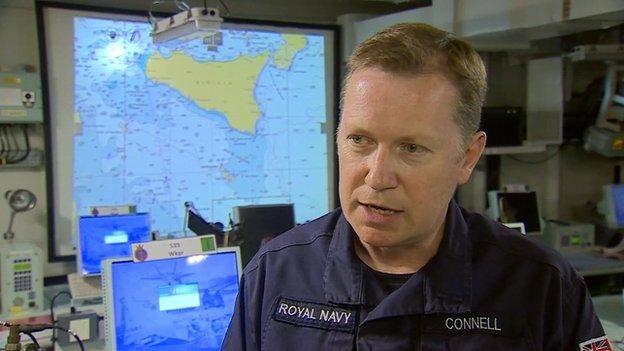
Commodore Martin Connell says most boats will not make it across
The figures are staggering, as is the scale of the problem. More than 43,000 people have already crossed the Mediterranean this year - that's a 50% increase on the numbers for last year. There are an estimated half a million people now in Libya waiting to make the same crossing.
The officer in charge of the British contribution to this search and rescue mission, Commodore Martin Connell, says it's "tragic". It is, he says, "the most grim situation you could possibly find. Most of these boats won't make it".
They're picking up people in inflatable dinghies and rotting wooden vessels that often don't even have an engine. The human traffickers responsible for this trade in human misery often just leave the people who've paid them hundreds of dollars to drift in the ocean. "If I could get my hands on some of these smugglers" he says, before pausing and adding simply: "they don't have much regard for human life."
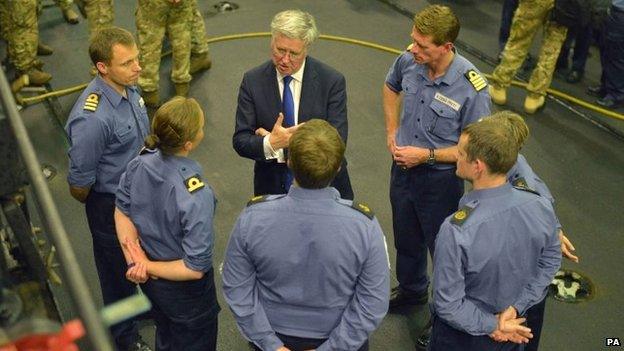
Michael Fallon visited HMS Bulwark on Saturday
On Saturday afternoon the defence secretary also flew out to Bulwark to get a briefing from the commodore and to thank him and the crew for their work. But even Michael Fallon admitted to me that this was like putting sticking plaster on a massive problem.
He said European countries needed to work together to tackle the root cause - the criminal gangs that trade on human misery - and try to bring stability to countries in chaos. Not just Libya from where most of these migrants leave, but also their countries of origin across east and West Africa.
The BBC's Jonathan Beale reports from HMS Bulwark as it patrols the Mediterranean
Mr Fallon is giving little detail about how that can be achieved, other than insisting it won't involve putting "British boots" on the ground. But there is, so far, little sign of reaching a consensus. While Britain is helping rescue the migrants, it's not offering them asylum. Some EU nations want to share the burden of resettling refugees, but the UK is one of a number of countries resisting that move.
Over a nine-hour period on Saturday, European warships and coastguard vessels rescued another 3,000 migrants. Commodore Martin Connell says he can't remember "so many vessels rescuing so many people in such a short time".
In the morning Bulwark will launch her helicopters and landing craft in the expectation that they will be taking on more desperate people.
- Published6 June 2015
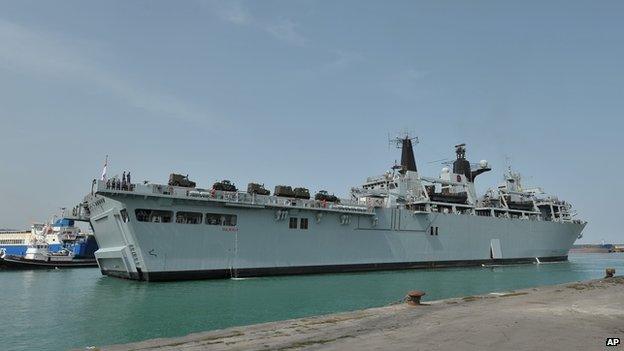
- Published13 May 2015
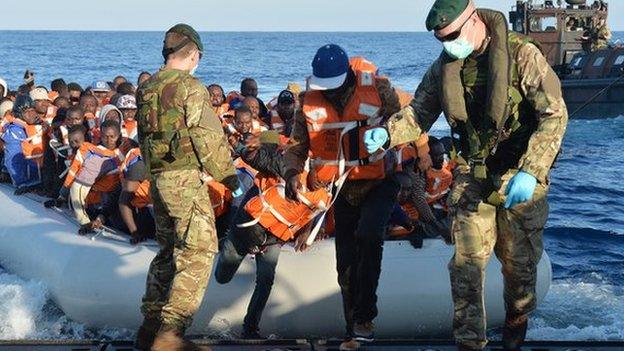
- Published13 May 2015
